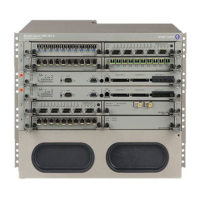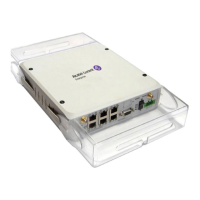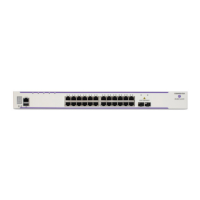Route Policies
7705 SAR OS Router Configuration Guide 413
Refer to the “Label Distribution Protocol” section in the 7705 SAR OS MPLS Guide for
more information on how routing policies can be used as LDP import or export policies to
control the label bindings an LSR accepts from, or advertises to, its peers.
Policy Statements
Route policies contain policy statements containing ordered entries that contain match
conditions and actions that the user specifies. The entries should be sequenced from the most
explicit to the least explicit. Packet forwarding and routing can be implemented according to
defined policies. Policy-based routing allows the user to dictate where traffic can be routed,
through specific paths, or whether to forward or drop the traffic. Route policies can match a
given route policy entry and continue searching for other matches within either the same route
policy or the next route policy.
The process can stop when the first complete match is found and the router executes the
action defined in the entry, either to accept or reject packets that match the criteria or proceed
to the next entry or the next policy. Matching criteria can be based on source, destination, or
particular properties of a route. Route policies can be constructed to support multiple stages
to the evaluation and setting various route attributes.
Other matching conditions can be provided by specifying criteria such as:
• autonomous system (AS) path policy options — a combination of AS numbers and
regular expression operators
• community list — a group sharing a common property
• prefix list — a named list of prefixes
• to and from criteria — a route’s destination and source
Default Action Behavior
The default action specifies how packets are to be processed when a policy related to the route
is not explicitly configured. The following default actions are applied in the event that:
• a route policy does not specify a matching condition; all the routes being compared
with the route policy are considered to be matches
• a match does not occur when the last entry in the last policy is evaluated
• if no default action is specified, the default behavior of the protocol controls whether
the routes match or not
